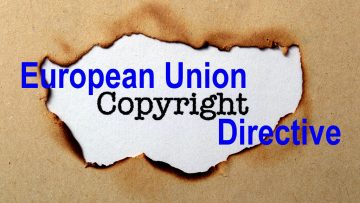Globalisation has brought its challenges. One of those challenges is that of dual-national marriages. Falling in love with someone from a different country may make you unwelcome as a couple in either country. Sometimes, it takes years to resolve where you can live in the world, which can be especially hard on the children involved. I am the product of a mixed family, but for me, my citizenship has made it a lot easier, possibly even a blessing. EU citizenship makes it easy for people from Member States to fall in love and live almost anywhere in Europe.
My British mother and French father taught my brothers and me the pleasures of multilingualism and travelling, as they have now worked for decades as university lecturers with backgrounds in modern languages, before later specialising in law and economics, respectively.
I first enjoyed freedom of movement as a new-born baby in 1992 when visiting relatives in northern France, an inevitability of growing up in a bilingual Franco-British household. From a young age, I was made aware that the relationship between the English and other nationalities is not always straightforward. I was pestered upon countless occasions for being ‘the French kid’ in school, despite being known as ‘the British guy’ everywhere else in the world!
My parents, on the other hand, reminded me many times of how lucky I was to be a dual national. Back then I found this hard to believe, for a variety of reasons, but I now embrace it thanks to the many opportunities that have since come my way.
I was pestered for being ‘the French kid’ in school, but ‘the British guy’ everywhere else in the world!
I learned Spanish in secondary school, and was able to pick it up quickly with my existing knowledge of the French language. I was even given the chance to put my conversational skills to the test when attending a week of work experience in a music shop in Segovia (Spain), an incident that gave me a taste for an adventurous life of living abroad. Alongside this, I began to attend extracurricular German classes in 2004.
The years flew by and I went on to study a bachelor’s degree in Modern European Languages at the University of Liverpool in 2010, aiming to increase my chances of finding work further afield at a later stage. After finding out about Brazil’s growing economy and the fast development of Portuguese-speaking nations such as Angola, I picked up Portuguese from scratch whilst studying French and Spanish at a higher level. With my previously acquired knowledge of two Latin-based languages, Portuguese came to me quite easily, despite the not-so-obvious initial difficulties in pronunciation. These languages have since functioned as a gateway for dabbling in other Latin-based languages, including Catalan, Italian and even Romanian.
Students were encouraged to partake in a two-part ‘year abroad’, an essential requirement to boost our language abilities from intermediate to advanced level, before reaching our fourth and final year of undergraduate study. I chose to teach English as a Comenius Assistant at a secondary school situated in Porto (Portugal), with financial aid from the British Council.
Once I had made my own diverse group of friends and regained confidence, life abroad became easy and enjoyable.
I then studied translation and literature on the Erasmus scheme at the Universidad de Alicante (Spain). Erasmus is an EU-funded scheme with a number of programmes, one of which provides participants with a monthly bursary to support their student lifestyle in a different country. This was the first time I was away from England for more than a couple of weeks, having to immerse myself into another culture. It was of course a little daunting as I missed my family and friends, combined with the unfamiliarity of these two cities, and worrying constantly about making grammatical errors in speech. Once I had made my own diverse group of friends and regained confidence, life abroad became easy and enjoyable.
My first graduate role was in international sales for a small company based in Yorkshire, specialising in exports to France, Germany, Ireland and Spain: a prime example of an SME that relies on free trade with our neighbours. Cold-calling was not really my strong point, and I struggled to gain an interest in the pest-control products we were manufacturing, but I got to travel on a monthly basis to visit clients across Europe, which was very exciting and helped me progress my cross-cultural communication skills, from conversational to being used in a business context. It was at this point that I felt the need to study at postgraduate level, in order to broaden my professional horizons.
In 2015, I enrolled in a three-part multilingual master’s degree in European & International Business Management at the Universidad de Deusto (Spain), Audencia Nantes Business School (France) and Bradford School of Management (United Kingdom). I focussed on marketing, combining my expertise in business development with the best of my creative side. My EU citizenship has allowed me to study and work throughout Europe without any bureaucracy constraints; I have seen the difficulties imposed on classmates coming from East Asia, North Africa and Latin America when it came to dealing with an exhausting visa process.
I also experienced this stress first-hand when completing a short internship in Shanghai (China), which led onto working for one year in a Hong Kong law firm. I did find, however, that being in possession of an EU passport was very useful for travelling around the Asia-Pacific region, enabling me to discover cultures, try new foods and make everlasting friendships.
My EU citizenship has allowed me to study and work throughout Europe without any bureaucracy constraints
I have worked in various parts of the world since obtaining my masters, notably at a Scandinavian bank based in Luxembourg. I am delighted to say that, thanks to my EU citizenship, professional experiences, education and passion for multiculturalism, I landed my dream job of working for the European Commission last year, the civil service of the European Union. As a communications officer I liaise with the press and share news on the benefits that EU investment has brought each of its Member States, in an attempt to set the record straight at a time when one cannot always rely on the media to be accurate.
Personally, I have never been particularly patriotic, as I find it difficult to be proud of something that happened purely by chance. Even though my dual-nationality gave me some grief during my upbringing, I feel that it has provided me with a competitive advantage over my peers.
As well as the freedom to live, travel, study, work and later retire in any EU country, I am currently cohabiting with my Canadian partner in Brussels (Belgium), another right I enjoy as an EU citizen. I am thankful for my EU citizenship, and believe in the ideals of the European Union at a time when protectionism is increasingly worshipped and isolation is celebrated. My EU citizenship is part of my core identity. It is who I am, and without it, I probably would not have moved out of my hometown, a feeling that chills me to the bone. EU citizenship makes falling in love and living together across borders something we can celebrate rather than fear.
 Born into a bilingual Franco-British household, Olivier was raised in a multicultural context, an environment that provided him with a passion to discover the world outside England in the years to come. His goal is to learn all he can on the benefits of EU membership, from its investment schemes to citizens’ rights and freedoms, and share this information with his friends and family back home.
Born into a bilingual Franco-British household, Olivier was raised in a multicultural context, an environment that provided him with a passion to discover the world outside England in the years to come. His goal is to learn all he can on the benefits of EU membership, from its investment schemes to citizens’ rights and freedoms, and share this information with his friends and family back home.











